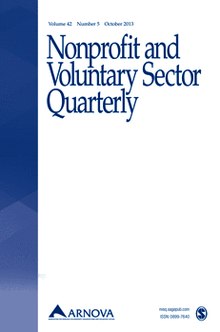Nonprofit organizations are often claimed to be schools of democracy: “that produce citizens able and ready to participate in society” (Dodge & Ospina, 2016, p. 479). This claim is predicated the external role nonprofits play in producing democracy, particularly by engendering civic action. In contrast, this paper promotes nonprofits internal organizing processes to produce democracy within nonprofits themselves. Drawing on the workplace democracy literature, we explore three main justifications for workplace democracy: consequentialist, deontological, and virtue ethics. Rather than viewing workplace democracy as an extrinsic good – based solely on consequences external to the organization – we argue that it should be considered an intrinsic good, valuable in and of itself. We therefore argue for a broadened imaginary for how nonprofits are managed, that include the internal organizational processes and widening of the social mission of nonprofit organization for greater democracy and freedom, based on good work.
Nonprofits as Schools for Democracy: The Justifications for Organisational Democracy within Nonprofit Organisations
Paper Title:
Nonprofits as Schools for Democracy: The Justifications for Organisational Democracy within Nonprofit Organisations
Journal Title:
Nonprofit and Voluntary Sector Quarterly
Published Date:
Authors:
King
Griffin
Abstract:




